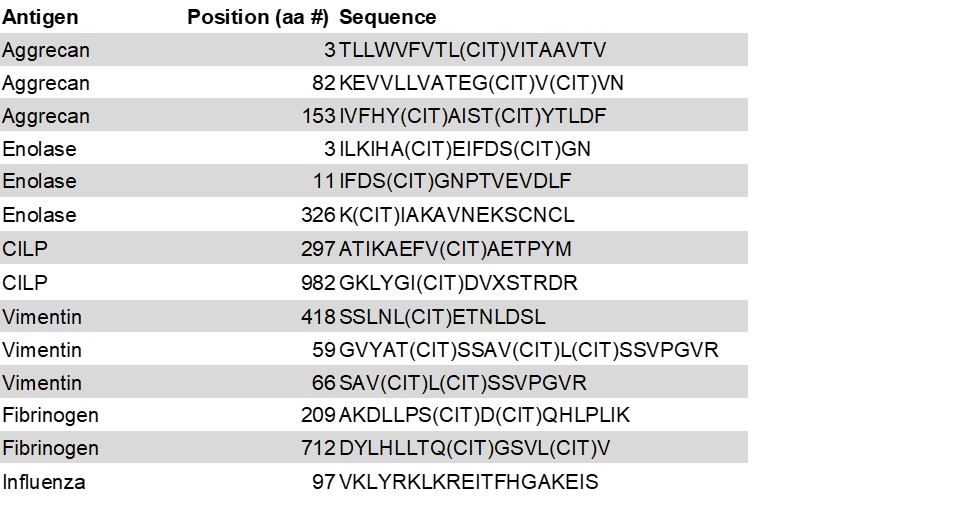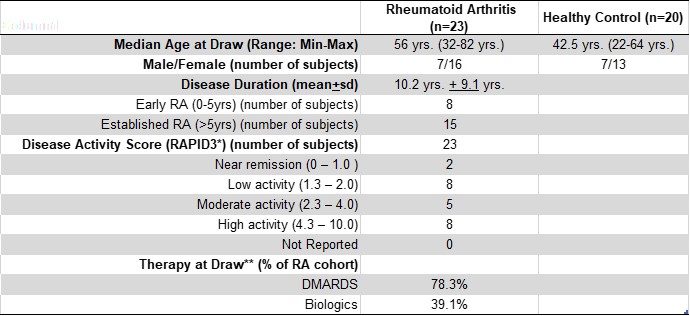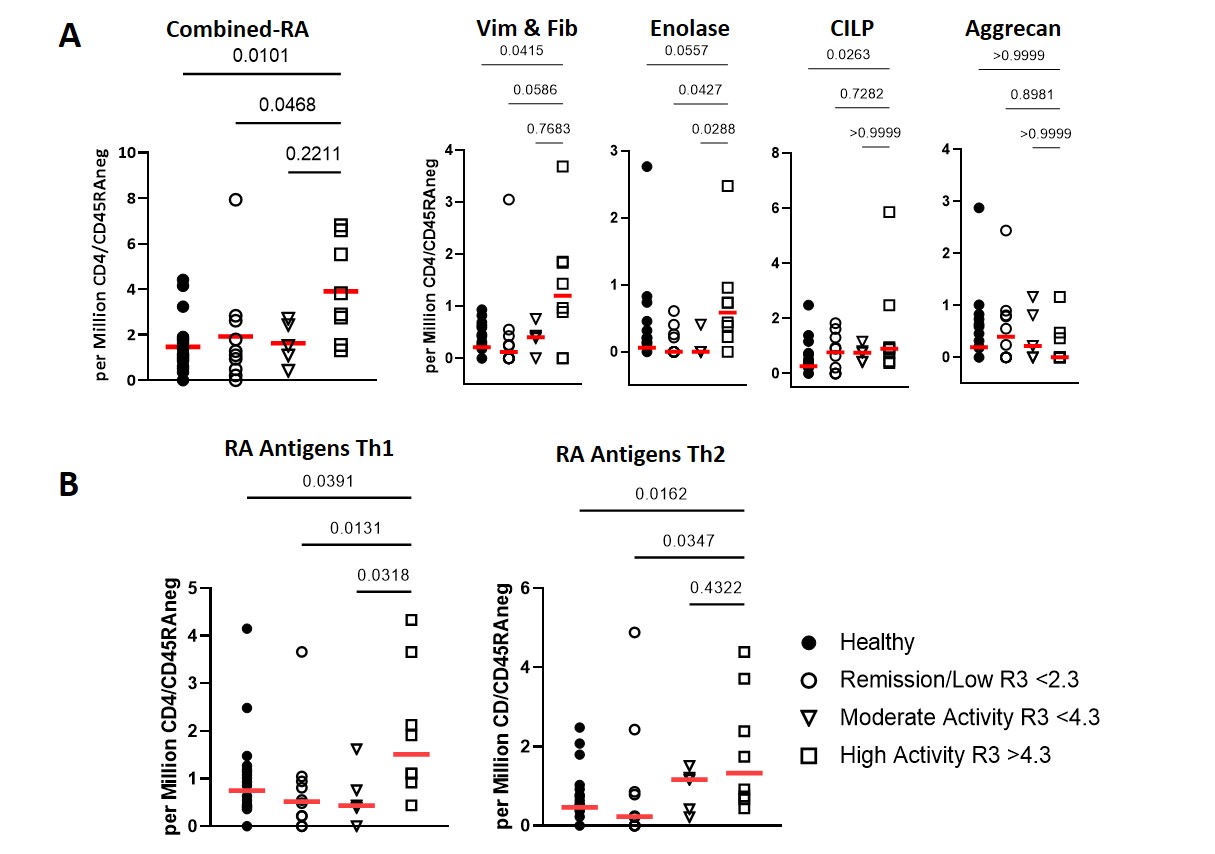Session Information
Date: Sunday, November 12, 2023
Title: (0066–0095) T Cell Biology & Targets in Autoimmune & Inflammatory Disease Poster
Session Type: Poster Session A
Session Time: 9:00AM-11:00AM
Background/Purpose: The presence of ACPA in RA signifies an immune response toward citrullinated auto-antigens in disease pathogenesis and persistence. RA is a T cell mediated disease based on response to T cell directed therapy, enrichment of T cells in the joint, and association with HLA class II alleles.DRB1*04:01 cit-epitopes have been well described originating from auto-antigens aggrecan, cartilage intermediate layer protein (CILP), α-enolase, α-fibrinogen, and vimentin. Despite DRB1*04:04 inclusion among the shared epitope alleles and over-representation in RA, literature identifying DR0404 restricted cit-epitopes have been scarce. The purpose of this study was to determine antigen specificities and to describe the character of DR0404 cit-reactive CD4 T cell responses in RA.
Methods: RA and control subjects were recruited with informed consent and sampled through the IRB approved Benaroya Research Institute (BRI) rheumatic disease and control registries. All subjects had at least one copy of the HLA-DRB1*04:04 allele. All RA subjects met the 2010 ACR criteria for RA, were ACPA+, and represented a range of characteristics that included duration of disease, therapy treatment, and disease activity at the time of draw.
Cit-peptides were designed starting from antigens reported in the literature to be associated with RA, synthesized based on predicted binding to DR0404 using a calculation matrix, and binding is confirmed using a competition assay. The peptides were assessed for immunogenicity using a 14-day in-vitro peptide stimulation assay using cognate-peptide loaded DR0404 tetramers to report response. T cell clones that target cit-peptides were isolated from responders. Finally, to characterize cit-specific CD4 T cells, blood from 23 RA and 20 healthy DR0404 subjects were stained with a multi-color cit-tetramer panel along with antibodies to determine CD4 subtype.
Results: A 74 cit-peptide library from aggrecan, CILP, α-enolase, α-fibrinogen, and vimentin was synthesized based on results from a DR0404 cit-prediction binding matrix. Next, a competition assay confirmed 23 peptides as DR0404 binders. All 23 peptides elicited an immune response in RA PBMC using a 14 day in-vitro stimulation assay and 6 clones were isolated and verified using tetramers. These results were used to create a multi-color 13 tetramer DR0404 ex-vivo panel where PBMC was stained from RA and healthy subjects. Ex-vivo analysis revealed all RA subjects having detectable cit-specific CD4 T cells whose memory cells consisted of either CXCR3+ or CCR4+. The frequency of memory cit-specific CD4 T cells was elevated among RA subjects with high disease activity and also enriched of Th1 and Th2 lineage.
Conclusion: These findings identify novel DR0404 restricted cit-epitopes and provide tools to capture and interrogate cit-reactive CD4 T cells in patients with RA and those at-risk for disease. In particular, we show cit-reactive T cell frequency and it’s inflammatory subsets are influenced by disease activity using a multiplexed tetramer assay, which can be used to better understand the interplay of antigen specificities and phenotypes in the pathogenesis of RA.
To cite this abstract in AMA style:
Rims C, Hocking A, Posso S, Ng B, Carlin J, Buckner J, James E. RA Disease Activity Influence the Frequency and Phenotype of Citrulline Reactive CD4 T Cells in DRB1*04:04 ACPA+ RA Patients [abstract]. Arthritis Rheumatol. 2023; 75 (suppl 9). https://acrabstracts.org/abstract/ra-disease-activity-influence-the-frequency-and-phenotype-of-citrulline-reactive-cd4-t-cells-in-drb10404-acpa-ra-patients/. Accessed .« Back to ACR Convergence 2023
ACR Meeting Abstracts - https://acrabstracts.org/abstract/ra-disease-activity-influence-the-frequency-and-phenotype-of-citrulline-reactive-cd4-t-cells-in-drb10404-acpa-ra-patients/



